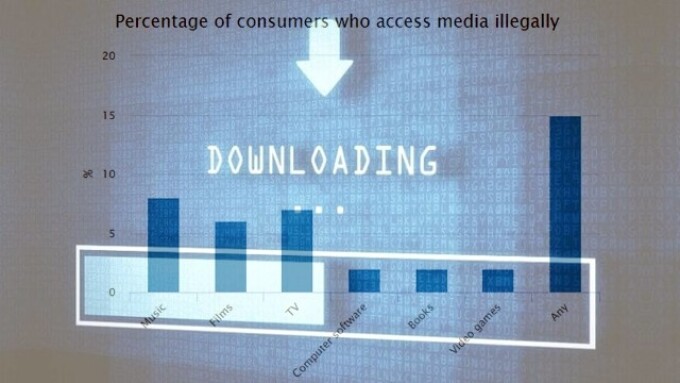LOS ANGELES — For an industry as plagued by piracy as adult entertainment has been, any efforts to stem the tide are seen as good news.
Enter Google and Microsoft, which have joined forces with the U.K. government and copyright holders to suppress pirated movies and music in search results on the popular Google and Bing search engines.
Search engines have long been criticized for ignoring the plight of rights holders victimized by piracy, but this initiative takes action against sites that have received multiple copyright infringement complaints by pushing them down in the search listings, away from the first page. The move also modifies the behavior of keyword “autocomplete” functions, to present only links to authorized content sources.
According to the U.K.’s Minister for Universities, Science, Research and Innovation, Jo Johnson, “[Search engines’] relationships with our world leading creative industries need to be collaborative.”
“It is essential that [consumers] are presented with links to legitimate websites and services,” Johnson explains, “not provided with links to pirate sites.”
Although Google and Microsoft are reportedly voluntarily participating in the antipiracy program, Britain’s Intellectual Property Office (IPO) will monitor compliance, leaving open the possibility of imposing fines and sanctions in the future.
Rights holders are celebrating the move, but warn that this step alone is not enough.
“We have long campaigned for search engines to do more to ensure fans are directed to legal sources for music or other entertainment [and] there is much work still to do to achieve this,” says BPI CEO Geoff Taylor, representing the music industry. “The Code will not be a silver bullet fix, but it will mean that illegal sites are demoted more quickly from search results and that fans searching for music are more likely to find a fair site.”
For a gauge of the problem’s scope, the IPO believes 15 percent of U.K. internet users actively access pirated content.
“[The U.K. is] one of the world’s leading digital nations and we have a responsibility to make sure that consumers have easy access to legal content online,” Digital Economy Minister Matt Hancock said. “Pirate sites deprive artists and rights holders of hard-earned income and I’m delighted to see industry-led solutions like this landmark agreement, which will be instrumental in driving change.”
For its part, Google denies search engines are a major traffic source for pirate sites.
“Google has been an active partner for many years in the fight against piracy online,” says a company spokesperson. “We remain committed to tackling this issue and look forward to further partnership with rights holders.”








